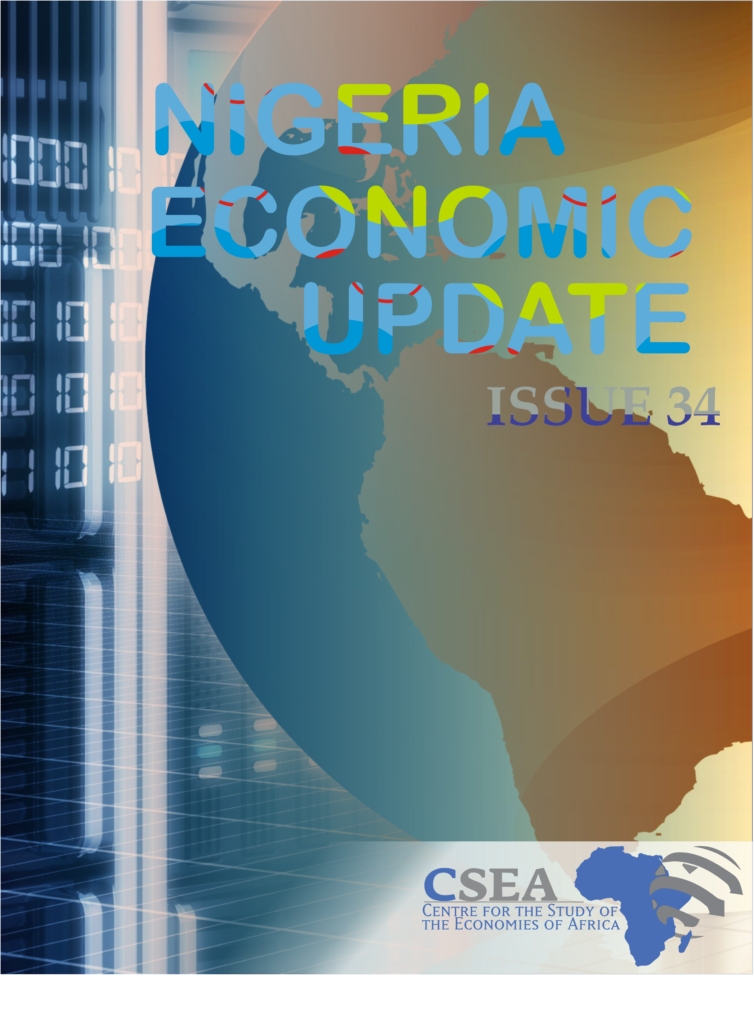Total capital imported into Nigeria declined in 2018Q2, compared to 2018Q1 – the first quarterly decline since 2017Q1. At $5.5 billion in 2018Q21, capital importation dropped by 12.5 percent from the $6.3 billion recorded in the preceding quarter. The quarter-over-quarter decline may be attributable to decreases in both portfolio and other investments, which fell by 9.8 percent and 24.1 percent respectively. However, portfolio investment maintained its leading role in contributing to total capital importation, at $4.1 billion or 74.5 percent. On the flip side, FDI continues to be the least contributor since 2017Q1, and accounted for only 4.7 percent ($264.1 million) in the review quarter. The overall lower capital inflows, particularly portfolio investments, puts into perspective the recent persistent downward trend in Nigeria’s capital and money markets.
Macroeconomic Report & Economic Updates

September 4, 2018
Nigeria Economic Update (Issue 34)
Total capital imported into Nigeria declined in 2018Q2, compared to 2018Q1 – the first quarterly decline since 2017Q1. At $5.5 billion in 2018Q21, capital importation dropped by 12.5 percent from the $6.3 billion recorded in the preceding quarter. The quarter-over-quarter decline may be attributable to decreases in both portfolio and other investments, which fell by […]
Read →
Related
Nigeria Economic Update (Issue 46)
The
Executive council recently approved a three-year external borrowing plan
(2016-2018) which specifies external borrowing of approximately $30 billion (to
be sourced mostly from MDBs) for infrastructure development.
Although, the plan is yet to be approved by the Senate, the planned concessional
loans for infrastructural development would imply inflows of foreign exchange which
could help moderate the exchange rate volatilities in the near term, and offer
potential improvement in business productivity and job creation.
Nigeria Economic Update (Issue 19)
A recent report by the National Bureau of Statistics
(NBS) indicates that Internally Generated Revenue (IGR) at the subnational
level decreased slightly between 2014 and 2015. Specifically, the report shows
that on the average, the IGR of all 36 states declined by 3.6 per cent from
N707.9 billion in 2014 to N683.6 billion in 20157. A further
disaggregation reveals that while IGR in 11 states improved in 2015 compared to
2014, IGR in 24 states were below their 2014 levels. As expected, Lagos state
generated the most IGR during the period. Given that domestic resource mobilization
is the most viable alternative to complement the shortfalls (driven by lower
oil prices) in budgetary allocations to states from the federal government,
state governments need to do more to improve the effectiveness and efficiency
of revenue collection.
Nigeria Economic Update (Issue 5)
Recently released media highlights show that Nigeria has dropped in terms of macroeconomic indicator rankings in 2018. With a headline index of 2.77, Nigeria is ranked 158th globally out of 181 countries five places lower than the previous year rankings. Indicators suggest that Nigeria is presently behind 28 other African countries, and just ahead of only 4 West African countries (Mauritania, Togo, Niger and Guinea Bissau).
